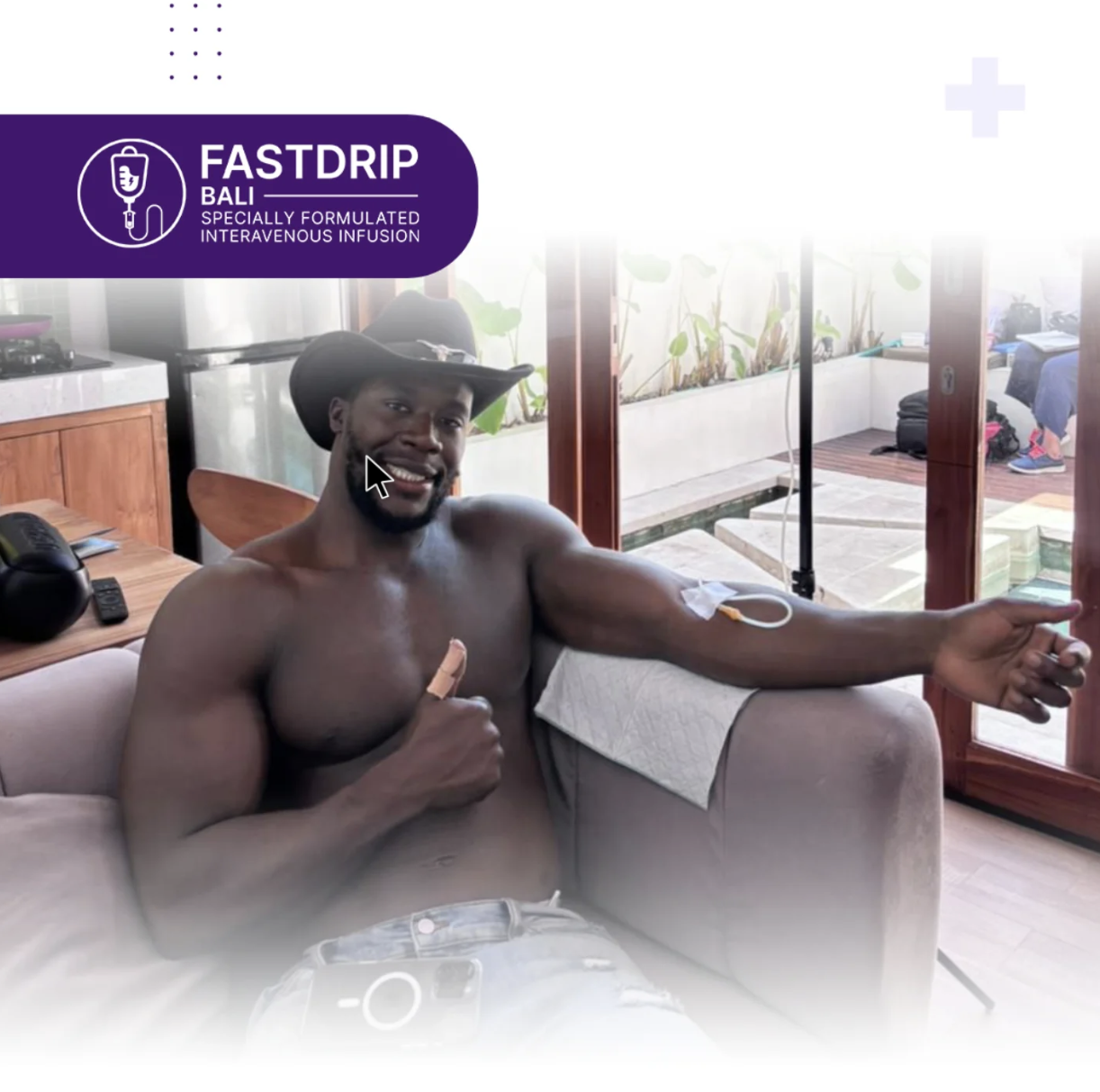You’ve just stepped back into your villa or hotel room in Bali after a long night out: loud music, cocktails, laughter—and the inevitable morning aftermath. The pounding headache, dry mouth, nausea, the fatigue—classic hangover symptoms. As wellness tourism rises, one approach getting traction for rapid recovery is the IV drip. But does it really work, especially here in Bali? In this article we explore IV drip therapy, the evidence, pros & cons, and whether IV Drip Bali might be your rescue plan.
What is an IV Drip?
Intravenous (IV) drip therapy refers to delivering fluids, electrolytes, vitamins, and sometimes medications directly into the bloodstream. Instead of drinking fluids or swallowing supplements, an IV drip bypasses digestion, which can make the rehydration process faster. For hangovers, IV drips are often promoted as helping with:
-
Rehydration
-
Restoring electrolyte balance
-
Reducing nausea or headaches
-
Delivering vitamins or antioxidants that may have been depleted
Why Hangovers Happen
To understand whether an IV drip can help, it helps to know what causes a hangover:
-
Dehydration & Electrolyte Loss
Alcohol is a diuretic—it increases urine production, which means you lose water and essential minerals like sodium, potassium, and magnesium. -
Toxic Byproducts & Liver Processing
When your body breaks down alcohol, it produces acetaldehyde, among other compounds. These are more toxic than alcohol itself and contribute to symptoms. Your liver works overtime to clear them. -
Inflammation & Immune Response
Alcohol can trigger inflammatory responses. Cytokines—immune signaling molecules—may increase, contributing to fatigue, headache, and general discomfort. -
Sleep Disturbance
Even if you get many hours of sleep, alcohol disrupts deeper sleep cycles. So your rest is less restorative, making the morning worse.
Does Science Support IV Drips for Hangovers?
There is some evidence, though not conclusive, that IV therapy may help some hangover symptoms. Two useful sources:
-
Healthline: In its overview “Does IV Hydration Work for Hangover Relief?”, Healthline notes that while IV fluid therapy may help relieve certain symptoms like dehydration, it isn’t a cure-all. It also notes that large-scale, controlled studies are lacking, so many benefits are based more on anecdote and smaller studies. Healthline
-
Harvard Health Blog: In “Drip bar: Should you get an IV on demand?”, they raise caution. They acknowledge people do seek IVs to recover from hangovers among other conditions. But they also point out that many symptoms of a hangover—sleep disturbance, liver metabolite accumulation, inflammation—are not addressed solely by hydration and vitamins. And they highlight risks of IV treatments: cost, risk of infection, and that often oral rehydration may be sufficient. Harvard Health
So in summary: IV drips can help with dehydration and some physical symptoms, but they don’t necessarily solve every cause of a hangover.
IV Drip Bali: What’s the Local Scene
Bali, being a top destination for partying, tourism, and wellness, has embraced IV therapy. Here are what the offerings look like locally, and what to watch out for:
-
Providers & Convenience: Clinics such as Hangover Lounge Bali offer mobile IV drip service, meaning they come to your villa or hotel. Their treatments include combinations like hydration, anti-nausea, pain relief, vitamin boosters, etc
-
Treatment Packages: Typical local packages might include a “Hangover Rescue” drip, “Energy Boost”, or treatments for “Bali Belly” (food poisoning), which often overlap with hangover symptoms.
-
User Feedback: Many clients report feeling significantly better within 30–60 minutes after an IV drip in Bali, especially for dehydration‐related symptoms.
Benefits of IV Drip in Bali
Here are the major pluses if you choose an IV drip in Bali when battling a hangover:
-
Speed: IV delivery means faster rehydration, quicker electrolyte restoration, often rapid relief of symptoms like headache, nausea, or dizziness.
-
Convenience: With mobile services, you don’t have to go far. After a heavy night, being able to stay in where you are and let medical professionals come to you is a big plus.
-
Comprehensive Treatment: Good providers mix in vitamins (like B-vitamins, vitamin C), anti-nausea medicines, pain relief, which might help more than just drinking water.
-
Safety (if done properly): Reputable clinics in Bali tend to use licensed medical staff, sterile equipment, and safe protocols. If you pick a well reviewed clinic (license, credentials, clean reviews) the risk is relatively low.
Risks & Limitations
But it’s not all rosy. Here are cautions:
-
Not a Cure‐All: As noted, IV drips do not speed up liver metabolism of alcohol or immediately reverse inflammation or sleep debt. They help with some symptoms, but others need rest, time, and supportive care.
-
Cost: These treatments are relatively expensive. In Bali, IV drip services can cost a significant amount in local currency, especially for mobile services or premium “infusions” with many vitamins or drugs.
-
Medical Risks: Any IV insertion carries risk: infection at puncture site, vascular damage, possible allergic reactions to additives, risk of overhydration if fluids are given too rapidly. Also, if you have underlying medical conditions (heart, kidney, electrolyte abnormalities) there may be risks.
-
Lack of Strong Clinical Trials: As mentioned above, most studies are small or anecdotal. The medical consensus is that while IV hydration can help, it is not standard in medical guidelines for hangover treatment. Healthline+1
What to Do If You’re Considering “IV Drip Bali”
If you’re in Bali after a wild night and considering an IV drip, here are some tips to make the best choice:
-
Check Credentials: Make sure the clinic or service has licensed medical staff (nurses or doctors), proper equipment, clean procedures.
-
Ask What’s in the Drip: Fluids? Electrolytes? Vitamins? Anti-nausea/pain meds? Know what you’re getting.
-
Understand Pricing & Travel Fees: If it’s mobile, there may be extra cost for travel; premium additives (vitamins, antioxidants) cost more.
-
Be Honest About Health History: If you have kidney, liver, heart problems; electrolyte disorders; or are taking medications—tell them. Some formulations or fluid loads might not be safe.
-
Manage Expectations: Expect relief in dehydration symptoms fairly quickly; expect full recovery to still take some time. Allow yourself rest, good food, sleep.
Realistic Alternatives to IV Drip
If IV drip is not an option (cost, availability, or personal preference), here are what experts typically suggest:
-
Oral hydration: water, electrolyte drinks, coconut water
-
Balanced meals with protein, fruits, vegetables
-
Rest, sleep
-
Over-the-counter pain relief (e.g. NSAIDs) if safe
-
Avoiding caffeine and alcohol until recovered
These measures may be slower, but often safer, and still effective.
Verdict: Can IV Drips “Save the Day”?
So, does IV Drip Bali save the day after a party hangover? The answer is: it depends. For dehydration, electrolyte disruption, and certain symptoms (nausea, headache, lightheadedness), an IV drip from a reputable provider in Bali can offer much faster relief than just oral measures. But it won’t fix every aspect of a hangover—especially those caused by sleep deficit, inflammation, or metabolic byproducts. And there are risks, costs, and trade-offs.
If you’re in Bali and you value fast recovery (e.g. you have plans for the day), then IV drip could be worth it. But it’s best used as part of a recovery strategy: hydration, rest, good food, and avoiding overindulgence.
Conclusion
“Hangover after party” is a nearly universal experience for many travelers in Bali. IV Drip Bali has emerged as a popular rescue remedy for those who want to bounce back quickly, blending hydration, vitamin boosts, and sometimes medicines. The science suggests IV drip therapy can help some of the worst dehydration symptoms, but it’s not a magic cure. As with any medical or wellness intervention, know your provider, be cautious, understand costs, and pair the drip with rest and good self-care.


